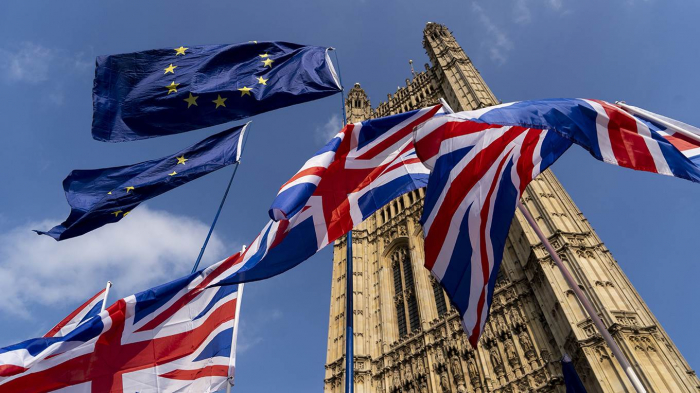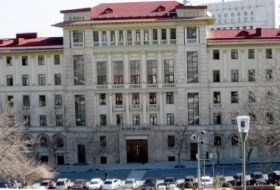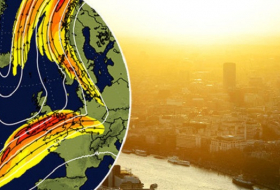Failed states used to be largely the preserve of the developing world, where the institutions of democracy do not have deep roots. But given the extent to which the Brexit campaign has undermined Britain's institutions through lies, it is reasonable to worry that the country will soon come to resemble a tinpot dictatorship.
What is a failed state? Not so long ago, when I was Britain’s Overseas Development Minister, and later European Commissioner for External Affairs, I would probably have tried to answer the question by pointing to specific examples, including several countries in Latin America and Africa.
I would have highlighted tribal conflicts, military coups, economic failure, extremes of poverty, and high mortality rates. I might have referred to the failure of more prosperous societies to ensure that globalization helped everyone and did not leave some communities trapped in deprivation. In addition, I would certainly have mentioned systems of government that had ceased to deliver what they were intended to do, and certainly what outside well-wishers hoped and assumed they would do.
By these latter criteria, one no longer needs to travel to Latin America or Africa to discover failure. Indeed, many of us in Britain worry that failure is increasingly evident within our own borders – which are soon to be clogged after Brexit – and particularly in the way the country is governed.
Britain’s system of government, much praised in the past, is based on parliamentary democracy and the institutions of pluralism that one would associate with an open society.
Voters elect individual members of parliament, who owe their constituents their best judgment about how to negotiate the predicaments of politics. MPs are not required to do what they are told by an alleged popular will – a system much favored by despots and demagogues. Instead, they are part of a system that owes much to the conservative political philosopher Edmund Burke, not to the French writer Jean-Jacques Rousseau. We have always preferred caution, compromise, and evolution to disruption and appeals to fleeting public passions.
The parties to which most MPs belong represent different strands of opinion. Yet by and large, debates have usually assumed a strong relationship between evidence and assertion. Facts might be interpreted in different ways, but they were not simply denied because they contradicted an ideological assertion. Dogmatism is a bad bedfellow to democracy. Experts can be challenged, of course, but until now, expertise was never seen as something the ruling establishment would use to bamboozle and obfuscate in pursuit of its aims.
In Britain, historically, government has been accountable to parliament, whose opinions it must respect and whose conventions it should follow. And a separate and independent judiciary guarantees the rule of law to which all, including ministers, are subject.
That is how Britain has run its national affairs: avoiding political extremism, achieving a self-adjusting balance between left and right, managing change over decades in peace and war, and making the transition from imperial power to middle-sized European country. By doing this without surrendering or diluting our values, we have won approval and praise around the world.
Sadly, things look very different today.
As a proportion of its electorate, Britain has fewer political activists than most other European countries. Yet these activists and other political partisans have recently acquired growing control over their parties’ policy direction and choice of leader.
As a result, the Labour Party is now led by Jeremy Corbyn, an old-fashioned far-left socialist. And 90,000 Conservative members, whose views have become more extreme as their numbers have fallen, recently selected Boris Johnson as their new leader, and thus as the country’s new prime minister.
In doing so, they have chosen a mendacious chancer. It is no exaggeration to say that Johnson has lied his way to the top, first in journalism and then in politics. His ascent owes everything to the growing xenophobia and English nationalism that many Conservatives now espouse. Johnson is prime minister because he has promised to deliver Brexit by the end of October, recklessly assuring the world that he will take the United Kingdom out of the European Union with or without a deal, and whatever the consequences.
Johnson has chosen a government of like-minded anti-European nationalists. His principal adviser, Dominic Cummings, was described by David Cameron, Britain’s prime minister from 2010 to 2016, as a “career psychopath.” Cummings is, alongside Johnson, the most powerful figure in the new government; he is an unelected wrecker who earlier this year was ruled to be in contempt of parliament. Fittingly, if depressingly, he now is masterminding our departure from the EU with or without parliamentary approval.
Moreover, the government is scheming to win an election, yet to be announced, on the basis of a “people versus the politicians” campaign. Those who oppose crashing out of the EU without a deal are to be branded as opponents of popular sovereignty. So much for parliamentary democracy.
The Johnson government denies the truth about the consequences of a no-deal Brexit, and denounces any attempt to point these out as “Project Fear.” The EU is blamed for the failure of negotiations, even though this was almost entirely the result of choices made by the previous British government. To cap it all, the public is told that if Britain can convince the EU it is prepared to damage itself with “no deal,” then France, Germany, and others will surrender and give us what we want. Yet any damage that a no-deal Brexit causes to the EU would be dwarfed by the long-term harm it inflicts on Britain.
Johnson and Cummings are prepared to use all the methods that were successful in the 2016 Brexit referendum campaign, when the British public were assured that there would be no question of leaving the EU without a deal. Promises of increased public spending now rain down from a Treasury that will soon be stretched thin. The value of the pound is falling, inflation rose in July, and business investment is flat. The supposed benefits of leaving the EU are no longer touted, with the exception of a promised trade deal with US President Donald Trump that would be almost as unacceptable to the US Congress as it would be to British public opinion. What’s more, the government is simply ignoring the fact that lengthy negotiations with the EU would inevitably follow from a “no-deal” departure.
Worse still, the future of the Union of England, Scotland, Wales, and Northern Ireland looks increasingly at risk. The government fails to accept that if Britain leaves the EU’s customs union, the resulting border between the Republic of Ireland and Northern Ireland will imperil the 1998 Good Friday Agreement, which has brought more than 20 years of peace to the island of Ireland.
Are these the actions of a successful state? Those who raise the question risk being dubbed “enemies of the people.” We are in good company: this is how Brexiters previously described three British high-court judges who asserted the principle of parliamentary sovereignty in the Brexit process.
As Brexit looms ever closer, Britain’s institutions, economic prospects, constitution, and future are all at risk. But the reckless plunge into delusion and lies proceeds apace.
Chris Patten, the last British governor of Hong Kong and a former EU commissioner for external affairs, is Chancellor of the University of Oxford.
Read the original article on project-syndicate.org.
More about: Britain















































